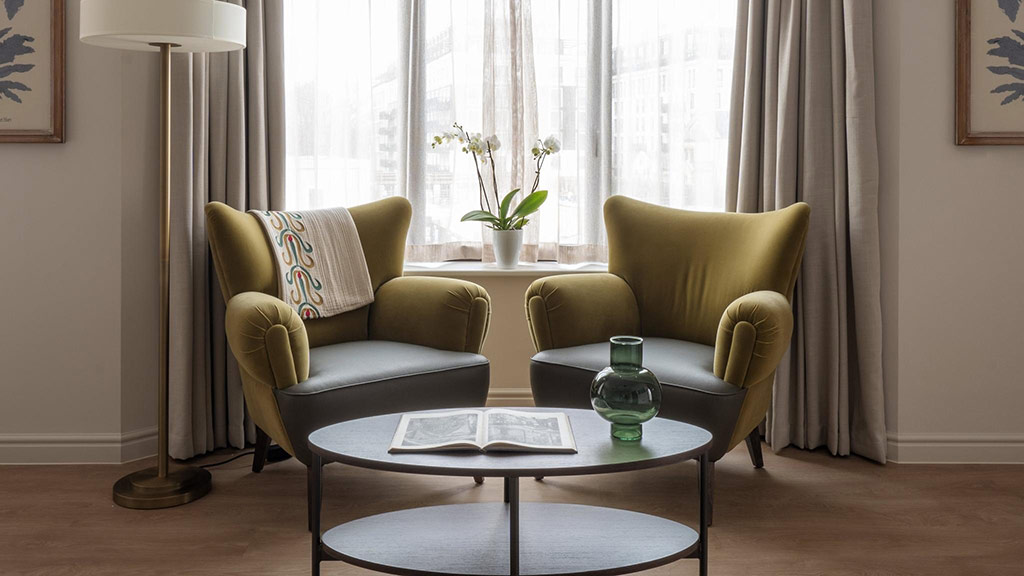Caring for a loved one is a profound responsibility, but even the most dedicated families need time to rest, recharge or manage life’s other commitments. This is where respite care becomes invaluable; offering temporary support for your loved one whilst giving you peace of mind.
However, respite care is not a one-size-fits-all solution. From occasional day services to immersive residential respite care, there are several options to consider. Understanding these will help you choose the right setting for your loved one’s needs.
What is Respite Care?
Respite care provides short term elderly care options, whether for a few hours, several days or a number of weeks. It enables families to take a break while ensuring their loved one continues to receive attentive support and engaging social interaction.
The key is to match the type of respite care with your loved one’s requirements, be it routine companionship, engaging hobbies, specialist health support or the benefits of an immersive care setting.
The Main Types of Respite Care
1. In-Home Respite Care
This option allows care to take place within your loved one’s home. A professional carer visits for an agreed period, assisting with daily activities such as meal preparation, medication prompts or simply providing company.
- Benefits: Familiar surroundings and minimal disruption to routine.
- Ideal for: Individuals with mild care needs who thrive best in their own environment.
2. Day Care Centres for Seniors
Day care for seniors provides structured daytime programmes, often including meals, activities and opportunities for social engagement.
- Benefits: Stimulating interaction and a change of scenery without an overnight stay.
- Ideal for: Those who enjoy socialising and benefit from engaging group activities.
3. Residential Respite Care
Residential respite care offers a fully immersive experience, with 24-hour support in a dedicated care setting. Stays can range from a few days to several weeks.
- Benefits: Continuous care, access to clinical expertise and a hospitality-led environment.
- Ideal for: Individuals with complex health needs or when carers require an extended break.
Short Term Elderly Care Options: Residential Respite vs Home Care
When comparing residential respite care with in-home care, the decision often depends on the level of support required and the benefits sought. Home care provides familiarity and can be less disruptive for those with mild needs, yet it may not offer access to clinical expertise or social opportunities. Conversely, a care home short stay delivers round-the-clock support, enriching lifestyle options and specialist therapies, all within a dedicated, structured environment. For those managing complex conditions or seeking restorative experiences, temporary senior living can offer far more than basic assistance.
Why Residential Respite Care Stands Apart
While in-home support and day services are useful for lighter needs, residential respite care offers something more comprehensive- the opportunity to experience a short term care home stay designed to support both physical and emotional wellbeing.
For loved ones living with dementia, mobility challenges or recovering from illness, temporary senior living provides:
- Expert-led care: Around-the-clock support from highly skilled professionals.
- Specialist facilities: From therapeutic environments to personalised wellbeing programmes.
- Enriching experiences: Fine dining, curated activities and spaces that combine comfort with style.
It’s not simply about meeting the needs of the individual, it’s about delivering a transformative experience that restores vitality and confidence.
When is Residential Respite Care the Best Choice?
Consider a care home short stay if:
- Your loved one has complex care requirements that need continuous monitoring.
- They would benefit from environmental change—new surroundings often stimulate mood and cognition.
- You are planning a holiday or recovering from surgery, requiring complete assurance of professional care.
Even a brief stay can significantly enhance wellbeing, offering renewed confidence and improved independence.
How Long Can a Respite Stay Last?
There is no fixed rule. Families book anything from a few days to several weeks. For many, short term elderly care options act as a trial for longer-term arrangements, giving both the family and the individual valuable insight before making permanent decisions.
What to Look for in a Residential Respite Provider
When selecting a residential respite care setting, consider the following questions:
- Expertise in specialist care– are the team specialised in dementia and rehabilitation needs?
- Lifestyle offering- are wellbeing programmes, dining experiences and leisure options part of the stay?
- Environment– does it feel welcoming, elegant and designed for comfort?
- Flexibility– can the home accommodate varying lengths of stay and bespoke needs?
A Modern Approach to Respite Care
Leading care providers are redefining respite care as a sophisticated, wellbeing-focused experience. Today’s temporary senior living combines hospitality with clinical excellence, offering private suites, chef-prepared dining, and a curated lifestyle.
Far from being a last resort, residential respite care now offers families confidence and reassurance, while giving loved ones the opportunity to thrive in a setting tailored to their needs.
- Respite care is essential for both carers and individuals.
- Options include in-home care, day care for seniors, and residential respite care, each meeting different requirements.
- Short term elderly care options, such as a care home short stay, are ideal for complex needs or when enriched living is desired.
- A temporary senior living experience can restore balance and improve overall quality of life.
Experience Loveday Respite Care
Discover how Loveday combines world-class hospitality with outstanding clinical care to deliver an elevated residential respite care experience. Our London and Surrey residences provide an exceptional setting for short term elderly care options, offering refined environments, personalised wellbeing programmes, and Michelin-style dining.
Book your complimentary afternoon tea and private tour today and see how a care home short stay can make all the difference.




